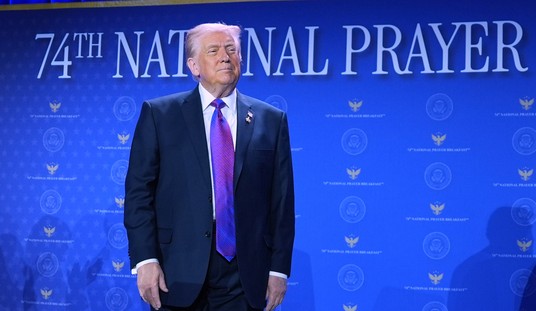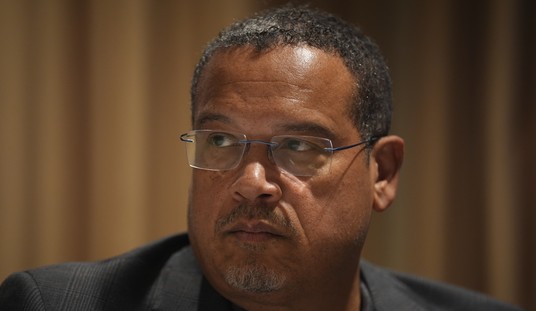Still stung following the outing of the serial embellisher and former NBC News anchor, Brian Williams, the liberal press is apparently on a mission to exact a pound of flesh from the universe of conservative commentators. The target they have selected is none other than the biggest name in the world of conservative commentary, Fox News Channel host Bill O’Reilly, who some have alleged is guilty of the same offense that cost Williams his job.
Mother Jones journalist David Corn and others reported this week that O’Reilly seriously overstated the danger that he and other journalists faced while covering the Falklands War in Argentina in the early 1980s. “The central dispute is whether Mr. O’Reilly reported from active war zones, as he repeatedly said on the air and in his 2001 book, ‘The No Spin Zone: Confrontations with the Powerful and Famous in America,’” The New York Times reported on Monday.
“Here in the United States we would use tear gas and rubber bullets. They were doing real bullets,” O’Reilly said in a 2009 interview. “They were just gunning these people down, shooting them down in the street.”
O’Reilly’s account to have been in serious personal jeopardy in 1982 while covering the end of the war in Buenos Aires was contradicted, according to Mother Jones, by two of his former CBS News colleagues. O’Reilly alleged that violent demonstrations broke out soon after the Argentine government surrendered to Great Britain, and the journalists who were in that city at the time were caught in the crossfire. “It was the chummiest riot anyone had ever covered,” said former CBS News correspondent Eric Engberg.
And while it has been confirmed that there were real bullets used by Argentine authorities to quell those protests, O’Reilly’s claim that the police were shooting civilians in the streets is unconfirmed. There is no evidence to suggest, however, that this was an intentional fabrication on O’Reilly’s part. Engberg’s claim that this riot was a slightly more energetic than your average Thanksgiving Day Parade is, however, particularly suspect.
A CBS News report from Buenos Aires in June of 1982 casts doubt on the notion that journalists faced little danger. In fact, the first few minutes of this clip focuses primarily on the crowd’s antipathy toward Western journalists and the fact that many reporters legitimately felt like they were in real peril.
On Monday, a former NBC News bureau chief also cast some doubt on the revisionism characterizing recollections about the Buenos Aires riots. “Both O’Reilly and [former Miami bureau chief Don] Browne recalled a ‘very intense situation where people got hurt’ and how ‘this was an extremely violent and volatile situation’ where reporters were in danger,” Mediaite reported.
“A squad of teargas-armed troops and a crowd hurling coins, rocks and even bricks at police and journalists,” a CNN report from the period read, according to radio host Hugh Hewitt who engaged Corn in a 45-minute probing over his allegations against O’Reilly.
“Maybe it was worrisome, maybe it was a riot that out of control, but if you covered a protest in Washington during the Vietnam War, in which there was scuffling and bottles thrown and fires set, are you allowed to say that you were a correspondent in the Vietnam War zone?” Corn said during his exchange with Hewitt.
This quote exposes the subjective lens through which reporters can view dangerous situations. If Corn is on a mission to impose some modesty and circumspection on journalists who cover tense episodes of civil unrest, he’s going to be waging a particularly grueling campaign against the entire journalistic establishment. Reporter, politician, and analyst alike almost uniformly determined in the summer of last year that Ferguson, Missouri, had quite literally devolved into a combat zone.
“The stories coming out of Ferguson, Missouri, paint an increasingly worrying picture—that of a Middle America city like most any other being turned into a war zone,” Cato Institute’s Tim Lynch wrote in an op-ed for CNN.
CBS News agreed when it reported on “why Ferguson, Mo., looked like a war zone this week,” in a post from August.
“Is this a war zone or a US city?” Rep. Justin Amash (R-MI) wrote in a tweet.
“Ferguson resembles Fallujah more than it does Ferguson,” Rep. Emanuel Cleaver (D-MO) insisted.
“Nobody wants to see our streets look like a war zone,” former Secretary of State Hillary Clinton opined. “Not in America. We are better than that.
@StephenBk http://t.co/yEwtLTPo6B http://t.co/yUdStbTRjM http://t.co/4HzcgmVzm3 some folks thought it looked like one http://t.co/mkAGZHUH3Q
— Andrew Kaczynski (@BuzzFeedAndrew) February 24, 2015
That assessment of the situation on the ground was shared by at least one Ferguson police officer, who called the increasingly dangerous city a “war zone” in a statement to a reporter last August. Missouri’s Democratic Gov. Jay Nixon agreed. “This is a place where people work, go to school, raise their families, and go to church,” he said. “But lately it’s looked a little bit more like a war zone and that’s unacceptable.”
No, Ferguson wasn’t literally a “war zone,” but those reporters who were on the ground (often embedded alongside protesters facing down police barricades) were taking on some personal risk. Few would begrudge figures within the media or political class for making a rhetorical comparison between a combat situation and violent civil unrest.
If Brian Williams had only inaccurately recalled his experience in a helicopter that he erroneously said had come under fire in Iraq in 2003, he would likely still be sitting in the anchor chair today. It wasn’t merely that one exaggeration but a series of them that forced NBC News executives to jettison him. What’s more, William’s role as managing editor of NBC’s Nightly News is distinct from that of a prime time talk show host.
But even if we were to hold a political entertainer to the same standards you would hold a straight news anchor, many of O’Reilly’s debatable recollections of the events that occurred 33 years ago are only just that: Debatable. Those on the left who are attempting to claim that conservative commentators are held to a lax standard of conduct must also contend with the prolific assertion that the Ferguson riots closely resembled a military engagement.








Join the conversation as a VIP Member